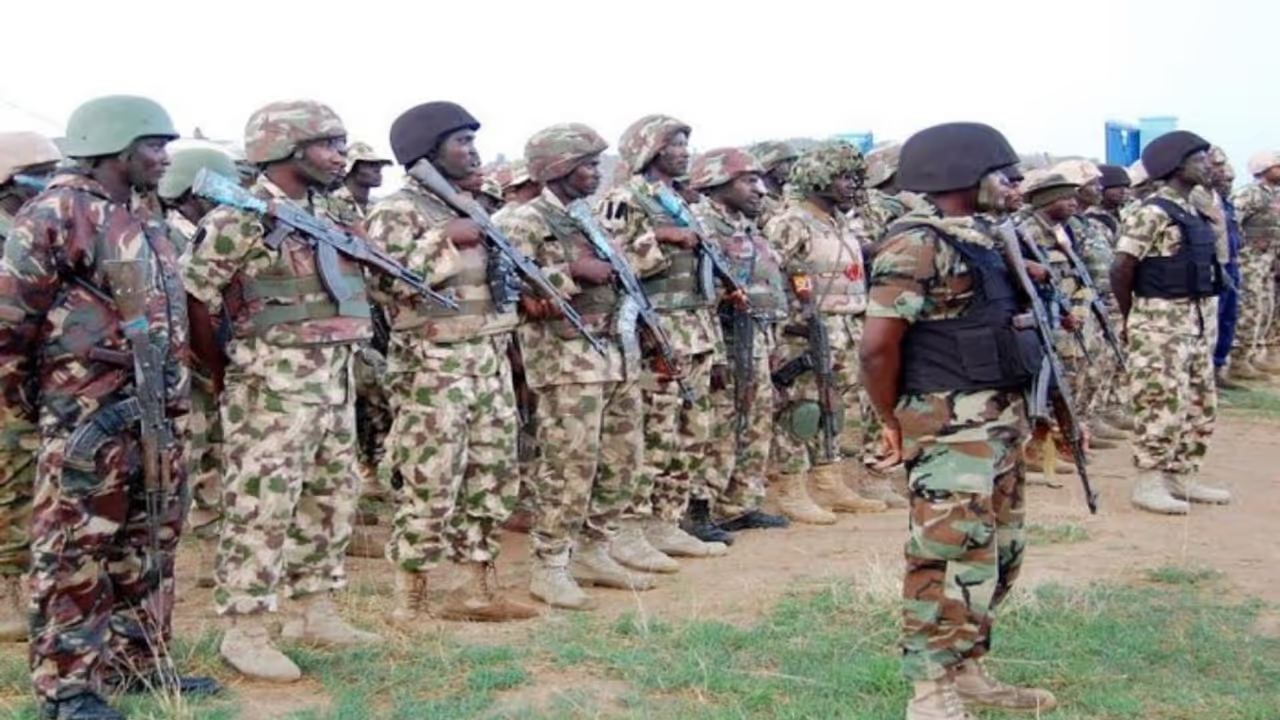Nigeria has arrested four Pakistani nationals for training and arming Boko Haram. As Islamic State-backed ISWAP intensifies attacks, authorities face a rising terror threat driven by foreign support, technology, and local grievances.
Nigerian authorities have arrested four Pakistani nationals for allegedly training Boko Haram militants and supplying them with arms, reports Economic Times.

The development highlights growing foreign involvement in one of Africa’s deadliest insurgencies.
Pakistani nationals held for aiding Boko Haram
The four arrested Pakistani nationals individuals are accused of working closely with Boko Haram operatives in northeastern Nigeria, where the group has carried out assassinations, bombings, and large-scale violence for over a decade. Officials familiar with the case said the Pakistanis were instrumental in strengthening Boko Haram’s operational capabilities.
Nigerian security sources also confirmed the presence of foreign mercenaries in Boko Haram ranks, ET reported. These fighters have brought in new skills and tactics, including advanced trap-setting, drone usage for surveillance and attacks, and the making of sophisticated improvised explosive devices (IEDs).
Boko Haram and ISWAP: Islamic State gains ground in Nigeria
Boko Haram has been active since 2009 and is responsible for over 30,000 civilian deaths and more than 2 million displacements, according to UN estimates. The group now has two factions:
- Islamic State West Africa Province (ISWAP), backed by the Islamic State
- Jama’atu Ahlis Sunna Lidda’awati wal-Jihad, the original faction
ISWAP, with an estimated 5,000 fighters, has been carrying out some of the most deadly attacks in recent years. It began a major offensive in March 2025, overrunning army posts in Borno state, the centre of the insurgency.
One of ISWAP’s most daring operations took place on May 12, when militants stormed the strategic town of Marte, capturing soldiers and forcing military retreats.
That same day, coordinated strikes were launched on the towns of Rann and Dikwa, giving ISWAP greater access to smuggling routes near Lake Chad.
Pakistan’s shadow in Africa’s terror map
ET report quoted counterterrorism analysts saying that Pakistani terror networks are now expanding into Africa and Eurasia. The arrests in Nigeria point to a possible larger Pakistani footprint in Africa’s jihadist movement.
India has also expressed concern over Pakistani involvement in global terrorism. During Prime Minister Narendra Modi's 2024 visit to Nigeria, both nations agreed to strengthen ties in counterterrorism, maritime security, and intelligence sharing.
Nigeria’s top defence officials have long been trained in Indian military academies, and a defence industry partnership is under discussion.
Why ISWAP is gaining ground
Experts point to several reasons behind ISWAP’s resurgence:
1. Strategic withdrawal of regional forces
In March, Niger pulled out troops from a joint counterterrorism task force. This created a security vacuum along the Nigeria-Niger border, enabling a flow of weapons and fighters to ISWAP.
2. Technology-driven attacks
ISWAP is using technology in increasingly lethal ways. A recent attack on a military base in Wajikoro began with four armed drones dropping grenades — a first for the group, which previously used drones only for reconnaissance.
3. Tech-savvy propaganda and recruitment
The group is targeting youth through social media platforms like TikTok, spreading extremist content and using artificial intelligence tools for editing videos and messages.
It has also begun using Starlink, a satellite internet service, to stream sermons and coordinate operations, a move that allows them to bypass local internet restrictions.
4. Diversified funding sources
ISWAP funds itself through several channels:
- Collecting taxes in areas under its control (farmers report paying ₦10,000 per hectare).
- Exploiting Nigeria’s growing cryptocurrency market.
- Engaging in black market activities.
- This financial flexibility enables them to carry out frequent and complex attacks.
- What Nigeria is doing
- To respond to the rising threat, Nigeria is planning to:
- Expand drone-based surveillance and strike capabilities.
- Intensify intelligence and reconnaissance operations.
- Collaborate more closely with neighbouring countries to disrupt cross-border terror networks.
Authorities say the discovery of foreign trainers and mercenaries highlights the need for international cooperation to tackle what is no longer a purely domestic threat.
An expanding threat needs a global response
The arrest of Pakistani nationals and the rapid advancement of ISWAP underline a sobering reality that Nigeria’s jihadist insurgency is now tied to global terror networks. While military action remains vital, experts stress the need to address deeper issues like poverty, youth radicalisation, and regional instability. Without tackling these root causes, the terror threat in West Africa may grow stronger and more international than ever before.


